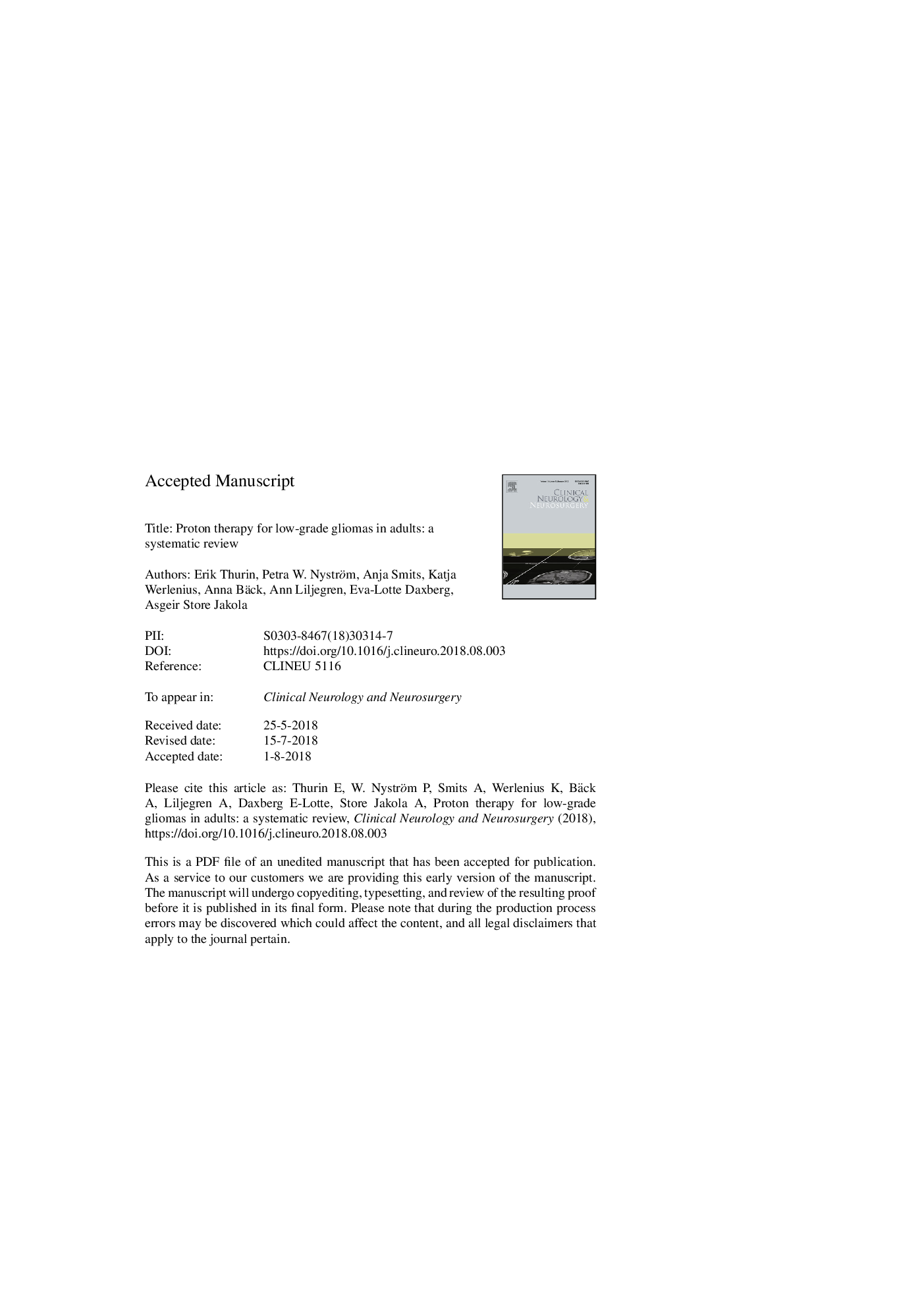| Article ID | Journal | Published Year | Pages | File Type |
|---|---|---|---|---|
| 11030620 | Clinical Neurology and Neurosurgery | 2018 | 19 Pages |
Abstract
For adult patients with diffuse low-grade glioma (LGG) proton therapy is an emerging radiotherapy modality. The number of proton facilities is rapidly increasing. However, there is a shortage of published data concerning the clinical effectiveness compared to photon radiotherapy and potential proton-specific toxicity. This study aimed to systematically review and summarize the relevant literature on proton therapy for adult LGG patients, including dosimetric comparisons, the type and frequency of acute and long-term toxicity and the clinical effectiveness. A systematic search was performed in several medical databases and 601 articles were screened for relevance. Nine articles were deemed eligible for in-depth analysis using a standardized data collection form by two independent researchers. Proton treatment plans compared favorably to photon-plans regarding dose to uninvolved neural tissue. Fatigue (27-100%), alopecia (37-85%), local erythema (78-85%) and headache (27-75%) were among the most common acute toxicities. One study reported no significant long-term cognitive impairments. Limited data was available on long-term survival. One study reported a 5-year overall survival of 84% and 5-year progression-free survival of 40%. We conclude that published data from clinical studies using proton therapy for adults with LGG are scarce. As the technique becomes more available, controlled clinical studies are urgently warranted to determine if the potential benefits based on comparative treatment planning translate into clinical benefits.
Related Topics
Life Sciences
Neuroscience
Neurology
Authors
Erik Thurin, Petra W. Nyström, Anja Smits, Katja Werlenius, Anna Bäck, Ann Liljegren, Eva-Lotte Daxberg, Asgeir Store Jakola,
